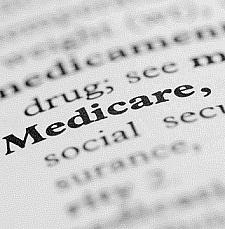Issue Worth Exploring: Raising the Medicare Eligibility Age May Harm Minorities

Since GOP presidential nominee Mitt Romney named Rep. Paul Ryan (R-Wis.) as his running mate, Medicare and plans to reform the program has dominated headlines.
Most of the media coverage has focused on Ryan’s proposal for a “premium support” option where seniors receive a fixed amount of money, a voucher, which they’d use to purchase insurance in a newly created Medicare marketplace.
However, the congressman’s plan to overhaul Medicare includes more than that.
J. Duncan Moore Jr., a contributor for The Medicare NewsGroup and co-founder of the Association of Health Care Journalists, looked into Ryan’s proposal to lift the age at which people become eligible for Medicare benefits from 65 to 67. Ryan’s plan, originally issued in March 2011, would increase the eligibility age for Medicare by two months a year starting in 2022, until it reached age 67 in 2033.
How would such a move impact seniors of color?
Moore wrote:
“The Congressional Budget Office (CBO) estimated that pushing eligibility to age 67 would reduce federal spending on Medicare by 5 percent. The CBO says most people would find substitute insurance through employers, spouses, and Medicaid or other government programs. Nevertheless, raising the age ‘amounts to a benefit reduction,’ the CBO says, and ‘a small share of those people would end up without health insurance.’”
However, opponents say the plan would be a raw deal for minorities.
“Raising the eligibility age ‘would negatively impact seniors of color because they tend to be in poorer health at earlier ages,’ said Maya Rockeymoore, chair of the National Committee to Preserve Social Security and Medicare, a Washington advocacy group. ‘Pushing back the age of eligibility decreases their ability to access the care they need.’”
Moore wrote that the issue cuts minorities two ways. First, minority groups tend to have lower salaries and lifetime incomes, making them more vulnerable to the financial pressures of purchasing private insurance. Second, Native Americans and African Americans have shorter life expectancies, meaning they would be paying into the program and less likely to reap the benefits, effectively subsidizing healthier, wealthier individuals.
Journalists should explore how raising the eligibility age impact residents and seniors in their local communities. There are so many questions to ask. Among them:
- How many additional would-be beneficiaries will now become Medicaid-eligible?
- How will an increase in eligibility age impact the private market and state exchanges, which will absorb most of those waiting longer for Medicare?
- Would the government end up spending those savings from raising the eligibility age on other federal aid programs for those having difficulty obtaining insurance?
- Will seniors have to remain in the workforce longer just to maintain access to affordable insurance?
With the 2012 presidential race heating up, specific issues involving Medicare reform are worth exploring.
Read Moore’s piece: Raising the Medicare Eligibility Age Harms Minorities, Is a “Benefits Reduction,” Experts Say
RELATED MNG CONTENT
MNG MEDICARE FAQS
Who Is Eligible for Medicare?
Can People Get Medicare If They Are Under Age 65?
MNG UNDERSTANDING MEDICARE
What Will Raising the Medicare Eligibility Age Mean?
At Issue: Covering a Proposal to Increase the Medicare Eligibility Age

